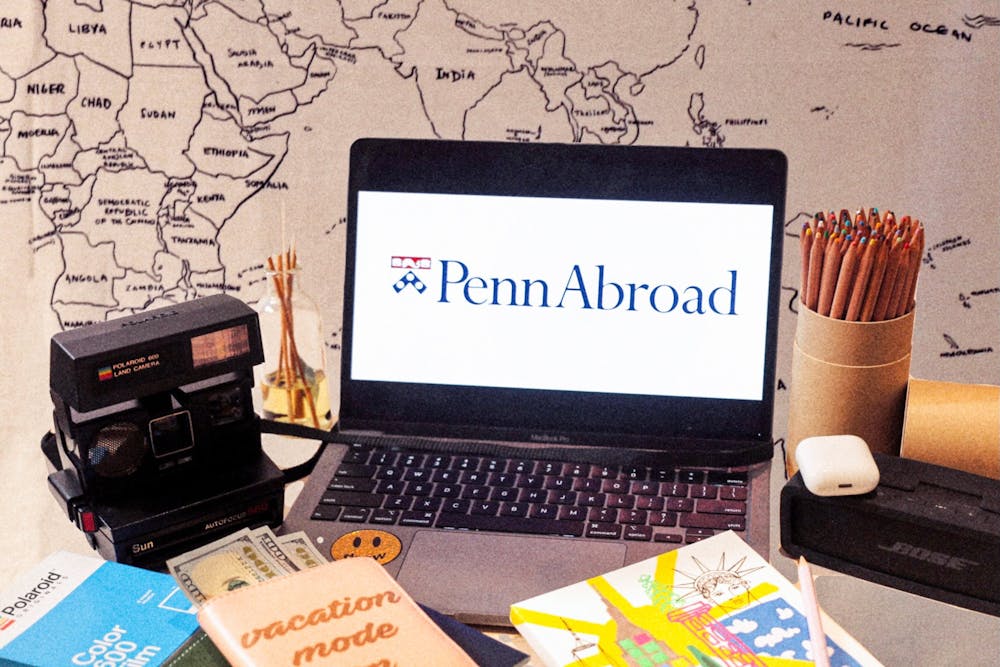
International students make up a vibrant and diverse group in the Penn community. From those who attend the traditional four-year undergraduate degree program to exchange students who spend one or two semesters abroad at Penn, international students always find a way to thrive at an institution known for its academic rigor and prestige.
As an international student myself, I always marvel at the number of countries represented by students in a merely 50-person class when I first started my studies at Penn. Taking a class on communism means that you get to hear from students from the Czech Republic, Russia, China, and so on, whose personal and family experiences reveal what it really means to live in post-communist regimes.
A 2013 study found that college students who interacted with international students tend to have “significantly higher levels of development,” and that these interactions led domestic college students to "not only seriously [question] their political beliefs, but also [challenge] their beliefs about other religions, other races or ethnicities, and people with other sexual orientations."
The international student body adds diversity in many ways. However, it takes time for international students to adjust to an unfamiliar country with a different style of education. This is particularly true for exchange students, who only tend to stay in the United States for a short period due to program stipulations.
Thomas Bonte, a former exchange student who studied at Wharton for a year in 2018, suggests that the Exchange at Penn program could offer more pre-exchange resources and helpful contacts before exchange students arrive on campus. “I think it would be more useful to get more guidance before starting school,” said Bonte.
Indeed, when it comes to the secrets behind housing selection or advice on what meal plans to choose, exchange students often rely on official information from Penn’s websites to make their decisions.
In many ways, exchange students lack the social savvy to maneuver through their initial confusion before they arrive in the United States. Browsing through Reddit communities, asking questions on GroupMe chats, or simply sending an email to Penn faculty about course registration — these college tips are not as universal and accessible to students outside of the United States who are inexperienced in the American education system.
Similarly, Eleanor Zhang, a current exchange student studying math and economics, commented on the need for “Penn to host Q&A sessions” before exchange students arrive at Penn. Typically, school-related businesses such as course or housing selection start weeks before the first day of class, and “allowing former exchange students to share their experiences and thoughts before [they] arrive” could prove invaluable to exchange students who often know little about the school system in the United States, let alone how Penn operates.
In order to become one of the approximately 200 exchange students at Penn every year, applicants have to first go through a nomination process, according to Penn Abroad’s website. The nomination process differs from one institution to another. For Bonte, his application was primarily considered based on his first-year grades at his home institution. In contrast, Zhang also had to submit additional essays to her home institution as well as her transcript to be nominated.
Nevertheless, what remains similar for both is that getting an exchange opportunity at Penn is extremely competitive and highly selective. Bonte reports that approximately 100 to 120 students from his home institution select Penn as their first-choice exchange program, but only five students will be nominated and ultimately accepted. Zhang also reported that “the competition [to be an exchange student at Penn] is very, very fierce.” Around 12 students are exchanged from her home institution to Penn every year.
With acceptance rates as low (if not even lower) as Penn’s first-year student acceptance rate, only very few exchange students can arrive in Philadelphia.
Thirteen percent of Penn’s admitted Class of 2025 students are international students — the second largest in percentage and the largest in number among all Ivy League schools. Penn admitted 429 international students in the Class of 2025, compared to Columbia’s 306 and Harvard’s 362. There are institutional priorities and demographics a university has to balance, but Penn can still increase international student presence innovatively through programs such as Exchange at Penn. In the 2018-2019 school year, while a total of 521 Penn students were exchanged to other institutions through Penn’s semester abroad program, Penn accepted 212 incoming exchange students overseas, a number that is less than half of the number of Penn students who studied abroad. Such imbalance in numbers would be understandable if Penn were not a popular destination for exchange students abroad. But given what I learned from interviews and online data, the demand is much higher than the supply. For example, the Queen Mary University of London’s official website described applying to Penn’s exchange program to be “very competitive.” In fact, Penn is one of only three exchange institutions out of the 17 U.S. institutions categorized in the most competitive group on the website.
For many exchange students, Penn is their top choice. A top choice should provide top-notch support and resources even for students who only spend one semester in Philadelphia. Given the many added benefits international students provide to a university and the many exchange students who are eager to spend a semester at Penn, improving and expanding the access to a Penn experience benefits all students.
SAM ZOU is a College junior studying political science from Shenzhen, China. His email is samzou@sas.upenn.edu.
The Daily Pennsylvanian is an independent, student-run newspaper. Please consider making a donation to support the coverage that shapes the University. Your generosity ensures a future of strong journalism at Penn.
Donate







